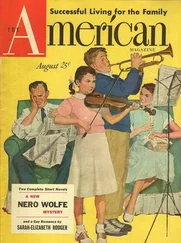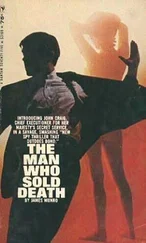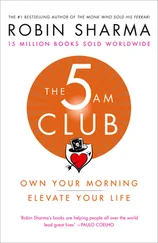“I guess most of what we understand about people is just the surface stuff,” I offered.
“Yes,” said Ahmet, nodding. “And that is a sad thing.” Ahmet was silent for a moment.
“But that is not the saddest thing,” he continued reflectively. “The saddest thing is that this is often all we understand about ourselves: that so often, we live our neighbor’s life, instead of our own.”
It was hard to tell how long we were actually on the Bosphorus. The phosphorescent water, the shimmering moon, the soothing hum of the engine made the journey seem like a dream, a moment out of time. But then Ahmet was turning the wheel and pointing at distant lights dotting the shore on the Asian side.
“Anadolu Kava  i,” Ahmet said pointing ahead. You cannot see it, but up there, on the hill, are the ruins of the Genoese Castle. From the fourteenth century. My little house is the other way, at the southern end of the village, along the shore.”
i,” Ahmet said pointing ahead. You cannot see it, but up there, on the hill, are the ruins of the Genoese Castle. From the fourteenth century. My little house is the other way, at the southern end of the village, along the shore.”
It didn’t take us long to dock the boat and then drive the little car that Ahmet had parked at the docks to his home in the village. The small stone house was nothing like the apartment that Ahmet kept in the city. Terra cotta tiles lined the floors, uneven plaster covered the walls, and the dark, rough timbers of the ceiling seemed to hold echoes from a distant past. Open shelves in the kitchen were lined with heavy crockery and brass cookware. Here and there were small bits of mosaic and brightly colored glass, but the woven window coverings and faded spreads on the furniture had the muted shades of time. Ahmet carried my backpack into a tiny room. He pointed to the small bed, no larger than a twin, its hand-carved frame pushed against the wall.
“The bed in which I slept with my two brothers,” Ahmet laughed. He put my knapsack at the foot of the bed, and then led me back to the living room. “Shall we sit outside for just a bit?” he asked.
We put on sweaters and moved out to the little stone patio overlooking the moonlit Bosphorus. Ahmet told me more about his favorite place, the water.
“It is said that the Black Sea used to be a freshwater lake. Thousands and thousands of years ago, there was an enormous flood, the Mediterranean spilled into the Bosphorus Strait here and turned the Black Sea into a saltwater ocean.”
“And the undersea river—do you think it might be a remnant of that?” I asked him.
“That’s what it sounds like, doesn’t it?” said Ahmet. “You know, some people think that the flood was the one that the Bible talks about—Noah’s flood.”
“No kidding,” I said.
“And the Bosphorus figures in Greek mythology as well. Are you familiar with Jason—of the Golden Fleece?”
I shook my head.
“Well, in Greek mythology, the Bosphorus was the home of the Symplegades—floating rock cliffs that would clash together and crush boats that dared make passage here. When Jason sailed down the Bosphorus, he sent a dove to fly between the rocks. The rocks crashed together, but the dove lost only its tail feathers. Then Jason and the Argonauts followed. The stern of their ship was clipped, but the boat did not founder. After Jason’s passage, the rocks stopped moving and the Greeks finally had access to the Black Sea.”
I smiled and nodded. My mom would have loved Ahmet and his stories.
“Oh dear,” said my host. “I had almost forgotten why you were here. Julian’s talisman. Let me get that for you.” Ahmet stood up quickly and entered the house. He returned a few minutes later with a small square of folded paper and a little bundle of red silk. He handed both to me.
“Well, now that you have what you came for,” he said, “we should go to bed. Tomorrow we will get up early. Head back to Istanbul. I can take you to Ayasofya—Hagia Sophia—before we make our way to the airport. But you will have to promise me to return someday so I can show you the rest of my home.”
I agreed happily and reluctantly rose from my chair.
WHEN I GOT BACK into the room, I placed the small bundle on a little round table next to the bed. I sat on the edge of the bed for a minute before I picked up the parcel again. Slowly I unfolded the soft square of silk. There in the middle was a small brass coin. Well, not a coin exactly. It was a disk, about the size of a nickel. On one side was stamped a sun, its rays radiating from a raised circle. On the other side, a crescent moon. I put the coin on the table and picked up the piece of folded parchment. I opened it and placed it on my knees. I read:
The Power of Authenticity
The most important gift we can give ourselves is the commitment to living our authentic life. To be true to ourselves, however, is not an easy task. We must break free of the seductions of society and live life on our own terms, under our own values and aligned with our original dreams. We must tap our hidden selves; explore the deep-seated, unseen hopes, desires, strengths and weaknesses that make us who we are. We have to understand where we have been and know where we are going. Every decision we make, every step we take, must be informed by our commitment to living a life that is true and honest and authentic to ourselves and ourselves alone. And as we proceed, we are certain to experience fortune well beyond our highest imagination.
I went to my backpack, and from the bottom I dug out the journal that Julian had given me. Then I slipped the parchment between its covers and put the journal back inside. I picked up the talisman again and turned it back and forth in my hands. Then I took the little leather pouch from my pocket and slipped the disk inside before turning back the covers on the bed and crawling in.
I WOKE THE NEXT MORNING, realizing that I had not moved a muscle all night. It was the kind of deep sleep I enjoyed only on vacation. When I padded into the kitchen, the wonderful aroma of Turkish coffee, pungent and dark, filled my nostrils. Ahmet served rich yogurt and fruit with the coffee, and then hustled me out the door, back through the cobbled village streets and to the water once more.
After we climbed into the boat, Ahmet started the engine and carefully backed away from the dock. Once the boat was out in the open water, he accelerated. We were moving faster than we had the night before, but that wasn’t the only thing that was utterly changed.
Despite the early hour, the sun was blazing in the sky. The villages, the green hills, the water—everything seemed bright and clear, sharp and vibrant. It was stunning, but the myth and mysteries of the previous night had evaporated. “It all looks so different,” I said to Ahmet. “Beautiful, but different.”
“Yes,” said Ahmet thoughtfully. “I often find that myself. Night hides many things, but reveals others.”
“It happens in cities, too,” I said. “Some often look magical at night but humdrum during the day.”
“And yet both versions are equally real.” Ahmet paused, and then added, “I suppose that is why it is never a good idea to make quick judgments about things. It takes a long time to really get to know places, people, even ourselves.”
The boat was humming through the water as birds circled and swung above us. Up ahead I could see two men throw a net from a small fishing boat. A young boy broke away from a group of people gathered on a dock and waved vigorously at us. I felt for a moment that I had traveled along these shores before but was only noticing them for the first time.
“Yes,” I said to my new friend Ahmet. “Yes, I am beginning to see the truth in that.”
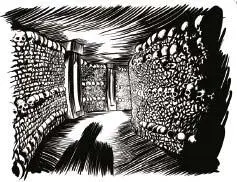 Читать дальше
Читать дальше
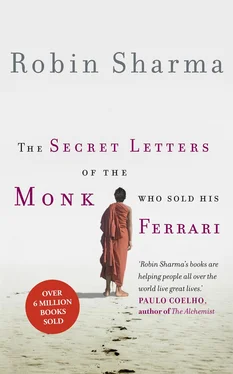
 i,” Ahmet said pointing ahead. You cannot see it, but up there, on the hill, are the ruins of the Genoese Castle. From the fourteenth century. My little house is the other way, at the southern end of the village, along the shore.”
i,” Ahmet said pointing ahead. You cannot see it, but up there, on the hill, are the ruins of the Genoese Castle. From the fourteenth century. My little house is the other way, at the southern end of the village, along the shore.”
